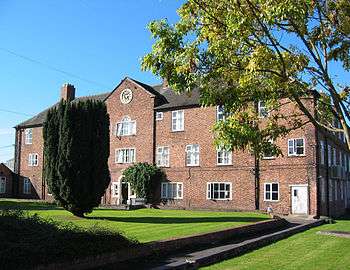Decline and abolition of the poor law system
The Decline and abolition of the Poor law system in England and Wales can be traced to around 1870 when the share of population on poor relief began to fall into sharp decline which continued until the outbreak of the First World War in 1914.[1]
Demise
The demise of the Poor Law system can be largely attributed to the availability of alternative sources of assistance including membership of friendly societies and trade unions. Local government began to offer work relief outside of the Poor Law system and the interventionism of the Liberal government in their Liberal reforms paved the way for the abolition of the Poor Law.
Abolition
Use of the Poor Law system increased during the interwar years due to high levels of unemployment.The Local Government Act 1929 abolished Poor Law Unions and transferred the administration of poor relief to local government leaving the Poor Law system largely redundant. In 1934 the Unemployment Assistance Board gained responsibility for the unemployed and from 1945-1948 saw the introduction of the modern welfare state with the introduction of the National Health Service. The National Assistance Act of 1948 saw the Act which formally abolished all Poor Law legislation.
